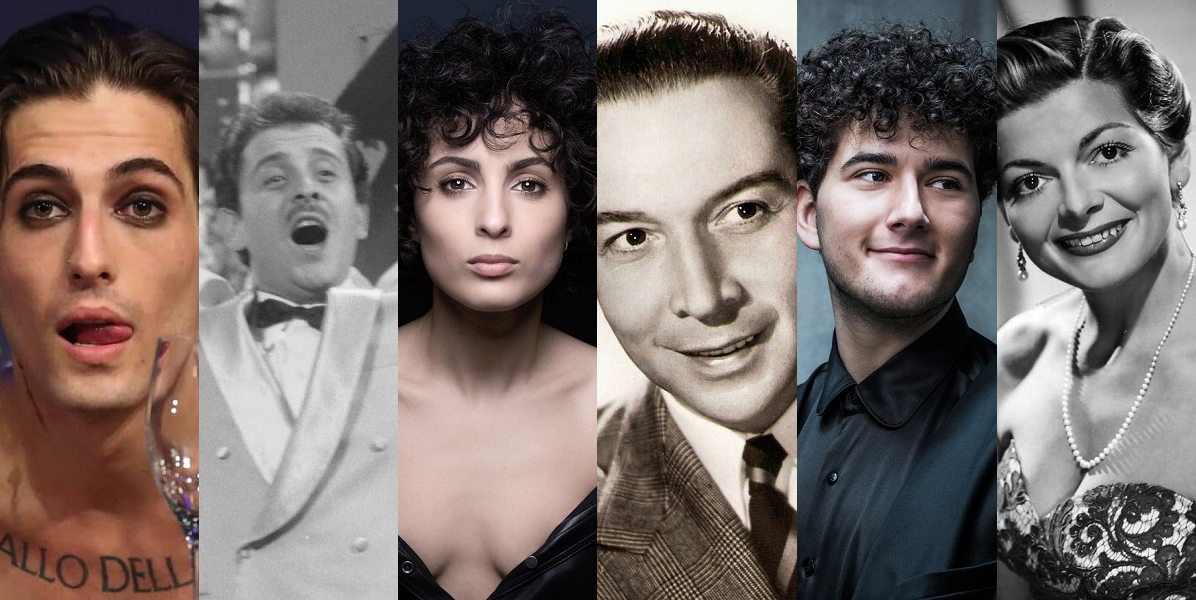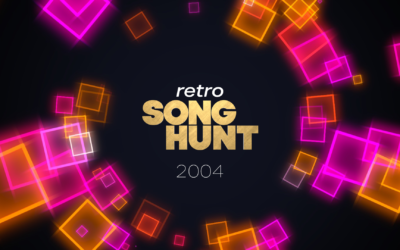There was an old-fashioned feel to the top of the Eurovision 2021 scoreboard, and not only because native languages featured so prominently – though that was nice too!
The podium finishers this year – Måneskin, Barbara Pravi and Gjon’s Tears – all represented countries with a long history in the contest. So long, in fact, that they were involved in the very first edition of ESC back in 1956. Two years later, in the fledgling contest’s third edition, Italy, France and Switzerland would find themselves in the top three positions – just as they did on Saturday night.
Let’s turn back the clock and revisit a trio of big hitters from the contest’s early days…
3rd place: ITALY: Domenico Modugno – Nel blu dipinto di blu (Volare)
Måneskin’s “Zitti e buoni” may or may not become a European hit following its victory on Saturday night – but it’s safe to say it’ll never be as big as the Italian entry of 1958. In an early example of the kind of decisions the contest would become infamous for, the juries that year came to the conclusion that “Nel blu dipinto di blu” – later to become better known as “Volare” – was only the third best song of the night. Yes, the same “Volare” that is arguably the most durable melody ever to come out of the Eurovision Song Contest (sorry ABBA). The “Volare” that spawned high-profile American cover versions, that soundtracked a thousand football chants, that even inspired a Meltem Cumbul-led singalong at ESC 2004. That “Volare”. Juries, eh?
2nd place: SWITZERLAND: Lys Assia – Giorgio
The contest’s first ever winner, Lys Assia, was showing no signs of leaving ESC behind at this point. In three years, she hadn’t let anyone else near the microphone to defend the Swiss colours – and in 1958, she came remarkably close to notching up a second victory with “Giorgio”. A novelty song that would have ranked among the most peculiar of winners, it nevertheless holds a place in every gastronomically inclined ESC fan’s heart for its sheer bizarre enthusiasm for the delights of risotto, Chianti and polenta.
1st place: FRANCE: André Claveau – Dors mon amour
It wasn’t the Italian megahit-to-be or the Swiss holiday romance that took home the trophy in 1958, though. France won the first of its five victories over the years (and, indeed, the first of three between 1958 and 1962) with arguably the least remembered ESC winner of all time.
It’s no great surprise, really: André Claveau was 46 years old at the time of his victory, making him less likely to break through as a continental star, and “Dors mon amour” was a pleasant tune but every bit as sleepy as the title suggests. Being thematically and musically influenced by Jesse Belvin’s “Goodnight My Love”, a Stateside hit two years earlier, may not have helped its commercial chances either.
Incidentally, in a neat circular touch to end this post, Jesse Belvin is one of the countless people to have recorded a cover version of… you guessed it, “Volare”!









0 Comments